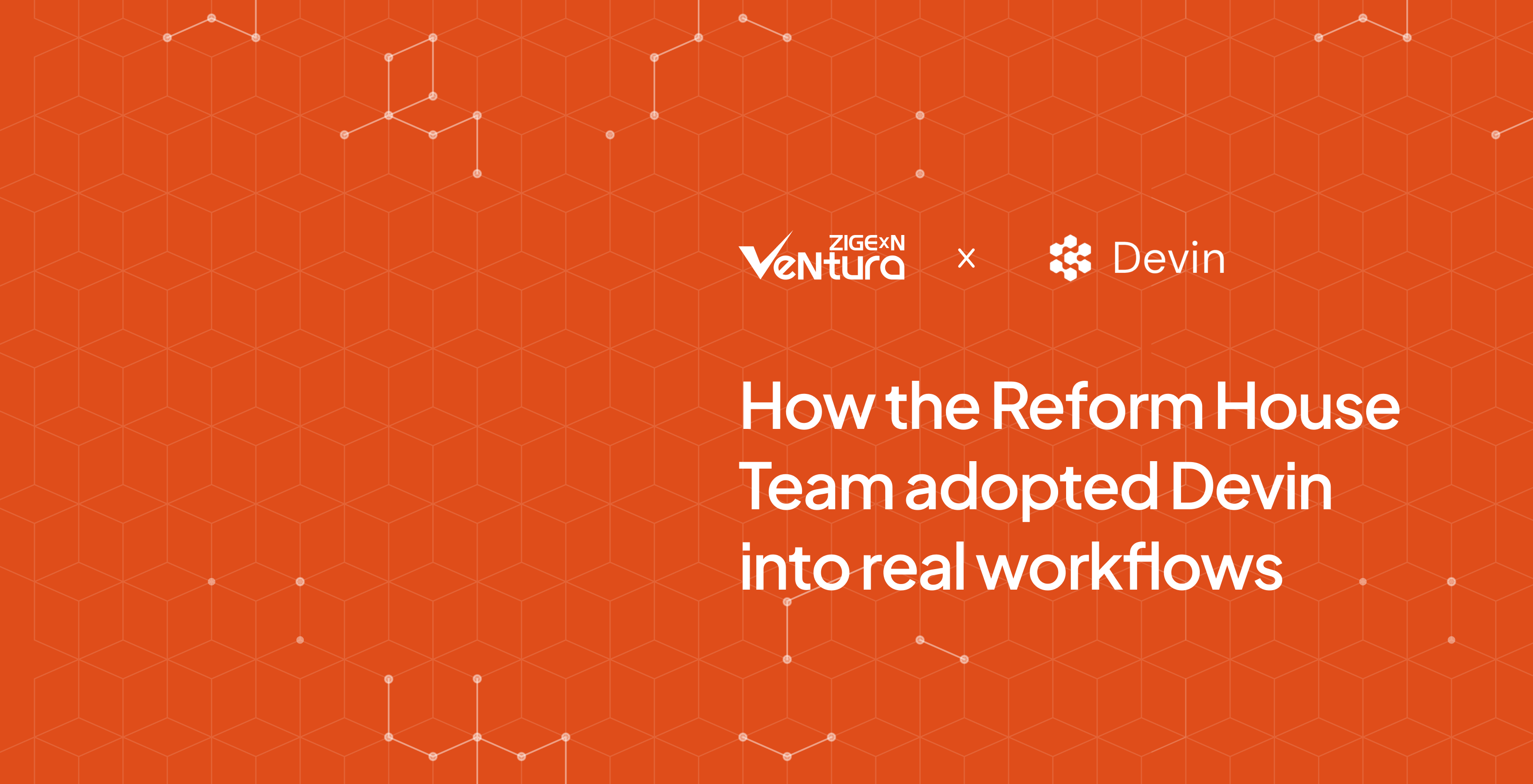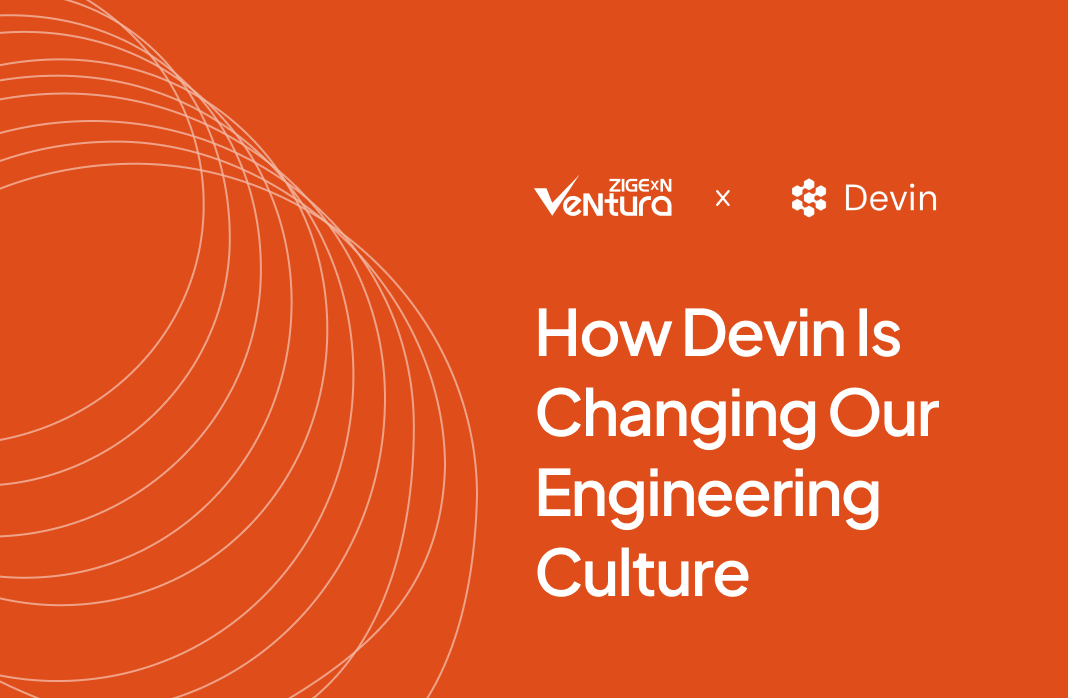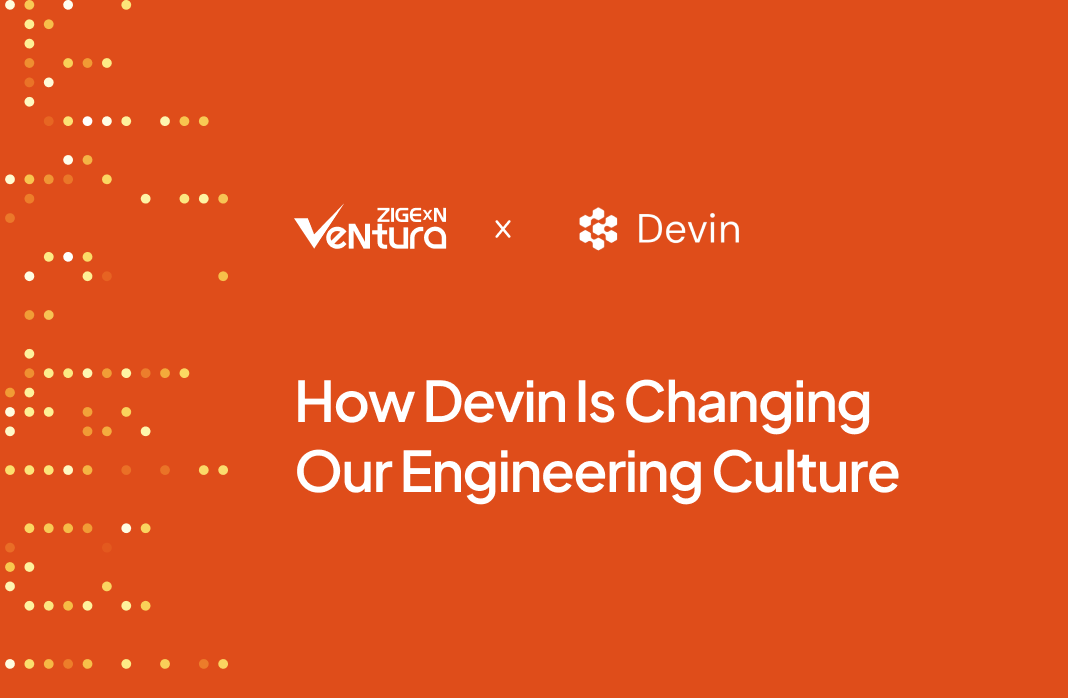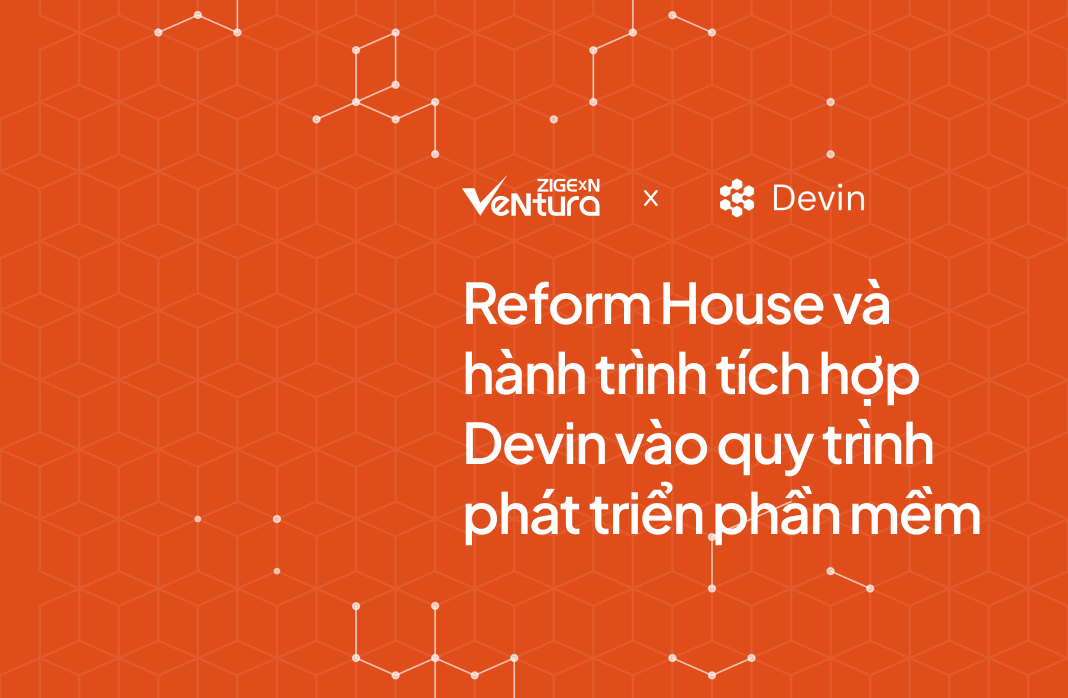At ZIGExN VeNtura, our Reform House team focuses on delivering high-quality software for a home renovation platform serving Japanese customers. Our projects often involve complex business logic and cross-functional collaboration between developers, testers, and BrSEs. Maintaining speed and quality with a small team of six to eight members was becoming increasingly challenging.
Why we brought Devin in
We faced several growing pain points. Code reviews were inconsistent, leading to occasional quality issues. Requirements often came in vague, especially from our marketing partners in Japan, requiring significant back-and-forth. Onboarding new developers took time, which slowed delivery. We needed a solution that would help streamline our processes without sacrificing quality.
That’s when we began experimenting with Devin, an autonomous AI software engineer. What started as a small trial soon demonstrated that, when used effectively, Devin could become a valuable part of our development workflow.
How we use Devin today
Devin now supports multiple stages of our development process.
During requirement analysis, Devin helps clarify vague specifications by prompting relevant questions. This has proven especially useful when requirements come from non-technical stakeholders. It ensures that both BrSEs and developers have a clearer understanding of what needs to be built before implementation begins.
In the coding phase, Devin provides context-aware code suggestions, highlights potential improvements in logic, and reinforces best practices for clean code. Its input helps both senior and junior developers maintain consistency and quality across the codebase.
When a pull request is created, Devin provides an automated first round of code review. Initially, its feedback was too general, but after fine-tuning with our coding standards, Devin now offers much more relevant and actionable comments. This has helped improve the efficiency and consistency of our code reviews.
In test case generation, Devin has delivered significant time savings. It understands the business logic of our application and generates test cases that align with real-world scenarios. This has helped our QA team reduce the time required to write test cases by up to 80 percent.
The benefits of these improvements extend across the team. BrSEs spend less time clarifying requirements with clients. Developers plan and implement more efficiently. Testers can focus on higher-level validation rather than writing repetitive test cases. For junior developers, Devin’s feedback provides an additional layer of guidance, helping them learn best practices through real examples.
How we customized Devin for our team
To maximize the value of Devin, we took a structured approach to integration.
We built a custom Playbook to guide Devin’s behavior and ensure it aligns with our team’s workflow and standards. We also developed a memory bank system to help Devin maintain awareness of project context. Clear review standards were defined, so that the AI-generated feedback remains consistent and aligned with our expectations.
We also recognized that input quality matters. Without clear and consistent prompts, AI-generated results can vary widely. To address this, we standardized prompts across the team using the Playbook feature. For example, when we want Devin to convert specifications into Gherkin user stories, we apply a predefined Playbook so the output follows a consistent format. This has helped us achieve reliable results across repetitive tasks and improved the team’s overall experience with the tool.
The impact so far
After just a few months of using Devin, we’ve seen measurable improvements in our workflow. Task completion speed has improved by 20 to 30 percent. New developers are able to onboard and contribute in as little as one week. Code reviews are smoother and more consistent, supported by Devin’s structured feedback. One developer noted that while Devin’s comments were initially quite general, they have become much more insightful and helpful after tuning.
What’s next
We see Devin as a foundational step in how we evolve our development processes. In the coming months, we plan to further refine our Playbook and knowledge base to improve the AI’s contextual understanding and accuracy. Our goal is to boost overall productivity by up to 50 percent.
We also plan to share our experiences and best practices with other teams across ZIGExN VeNtura, helping them explore similar opportunities with AI. Additionally, we are exploring tools to better track and measure Devin’s contributions to each task, giving us a clearer picture of its impact on both team efficiency and quality.
While AI is not a replacement for people, when thoughtfully integrated, it can significantly enhance how we work. Devin has already helped us improve consistency, accelerate delivery, and free up time for more strategic thinking and higher-value work. We look forward to continuing this journey and exploring how AI can further support our team in building better software.






